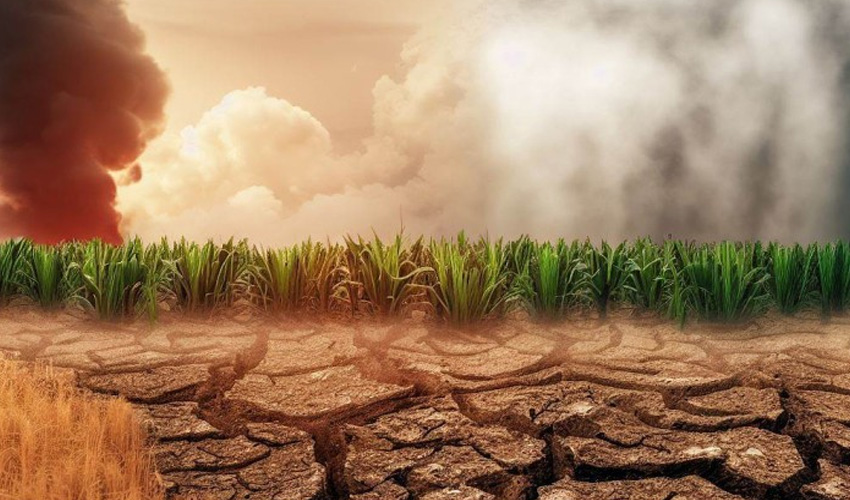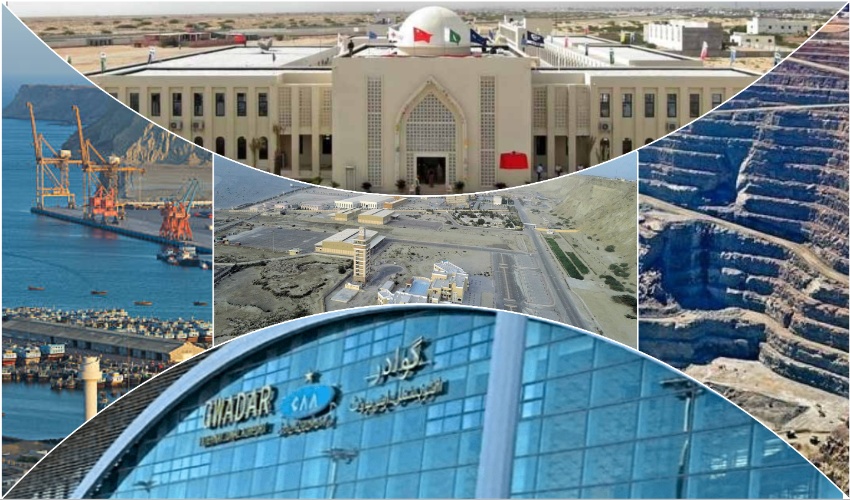Pakistan's real estate sector has long been a double-edged sword, providing economic opportunities while simultaneously wreaking havoc on the environment and contributing to economic inefficiencies.
The recent revelations from the Dubai leaks, highlighting Pakistani investors' significant investments in UAE properties, underscore a critical issue: the country's economic managers have failed to create attractive, safe, and profitable investment opportunities domestically.
This failure has diverted substantial capital away from Pakistan, exacerbating the nation's economic and environmental challenges.
Environmental impact of real estate
Real estate development in Pakistan has been largely unchecked, leading to widespread environmental degradation. Fertile agricultural lands, essential for food security, have been consumed by sprawling housing societies. Communal lands, necessary for biodiversity and citizens' well-being, have been lost.
This unregulated growth has increased dependence on fossil fuels and contributed to air pollution, further exacerbating the country's vulnerability to climate change.
Despite these challenges, the real estate sector offers a unique entry point for economic growth and climate action. With its backward and forward linkages to over 40 industries, transforming the sector could stimulate broad-based economic development while addressing environmental concerns. A commitment to safe, resilient, and low-carbon human settlements could serve as Pakistan's equity to access international climate investments.
The absence of coherent national and provincial policies, coupled with a lack of effective local government institutions and land-use planning mechanisms, has facilitated the unchecked expansion of housing societies.
These developments, often driven by archaic engineering designs and outdated construction materials, have exacerbated environmental degradation and increased vulnerability to climate disasters.
Pakistan's real estate sector has also been a hotspot for money laundering, tax evasion, and other illicit activities, as noted by the Financial Action Task Force (FATF) and the International Monetary Fund (IMF). However, the sector's impact extends beyond financial crimes, contributing significantly to ecological harm and unsustainable urban sprawl.
To address these issues, Pakistan must realign its real estate sector with national climate resilience and low-carbon development goals. This realignment involves several key strategies:
Policy and regulatory reforms
Developing and implementing comprehensive national and provincial policies to regulate land use and real estate development. These policies should promote vertical growth over horizontal expansion to preserve agricultural lands and reduce urban sprawl.
Climate-smart development
Encouraging the adoption of climate-resilient building designs and construction practices. Real estate developers should integrate resilience into the design, construction, and management of buildings and infrastructure to mitigate the impacts of climate change.
Stakeholder engagement
Fostering collaboration between government institutions, real estate developers, and communities to ensure that development projects consider climate-related vulnerabilities. This collaboration can help map climate-related risks and guide informed decision-making.
Incentivising green investments
Creating attractive opportunities for both local and international investors to finance sustainable real estate projects. Aligning investment strategies with climate resilience can attract capital committed to net-zero initiatives, reducing the sector's carbon footprint and enhancing its sustainability.
Leveraging Remittances
Channeling remittances from the Pakistani diaspora into climate-resilient infrastructure projects. Countries like the Philippines, Mexico, and India have successfully directed remittances toward sectors like tourism, education, and health, setting examples that Pakistan could follow.
Role of key players
Leading real estate companies in Pakistan, such as Bahria, Defence, Emaar, Graana, and Zameen, have a pivotal role to play in this transformation. By adopting global best practices and partnering with international firms experienced in climate risk assessment, these companies can drive the sector towards sustainability. They can develop analytical capabilities to understand physical and transition risks posed by climate change and implement measures such as improving flood defenses and disaster response plans.
Furthermore, real estate companies can contribute to protecting communal lands, avoiding high-risk areas, and developing climate-resilient building designs. By doing so, they not only enhance their own resilience but also contribute to national climate adaptation efforts.
The transformation of Pakistan's real estate sector requires coordinated efforts across multiple stakeholders. A single ministry or department cannot achieve this alone. It is imperative for the Prime Minister to constitute a task force dedicated to this cause. This task force should articulate a clear vision for resilient development, initiate dialogue among key stakeholders, and engage with the international community to secure climate investments.
By committing to climate-resilient development, Pakistan can turn its real estate sector from a source of environmental degradation into a driver of sustainable growth. This commitment will not only improve the nation's climate resilience but also attract international finance, providing a path towards economic stability and environmental sustainability.
In conclusion, the real estate sector holds immense potential for transforming Pakistan's economic and environmental landscape. Through strategic reforms, stakeholder collaboration, and a commitment to climate-smart development, Pakistan can leverage this sector to achieve sustainable growth and resilience in the face of climate change.



























